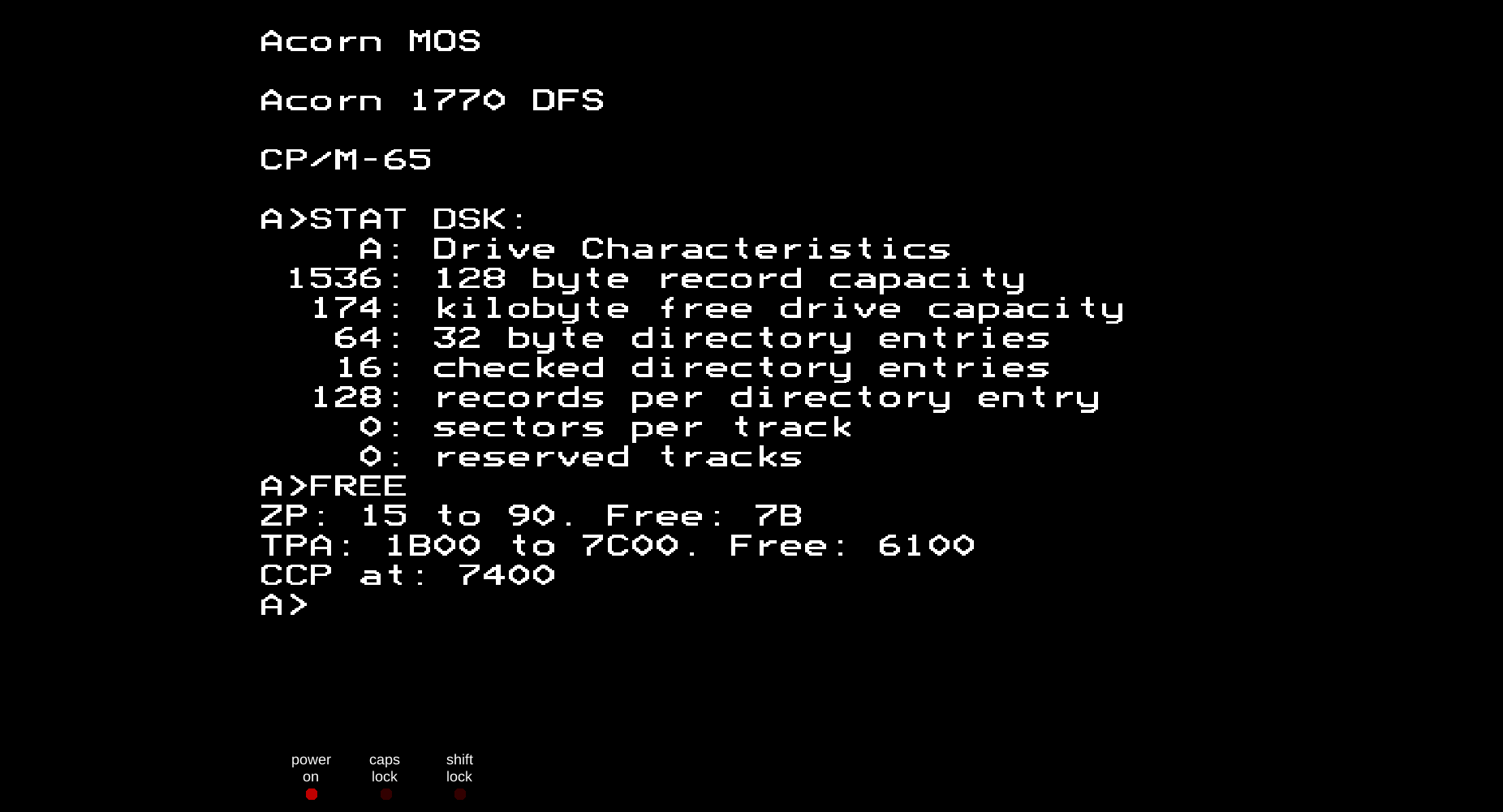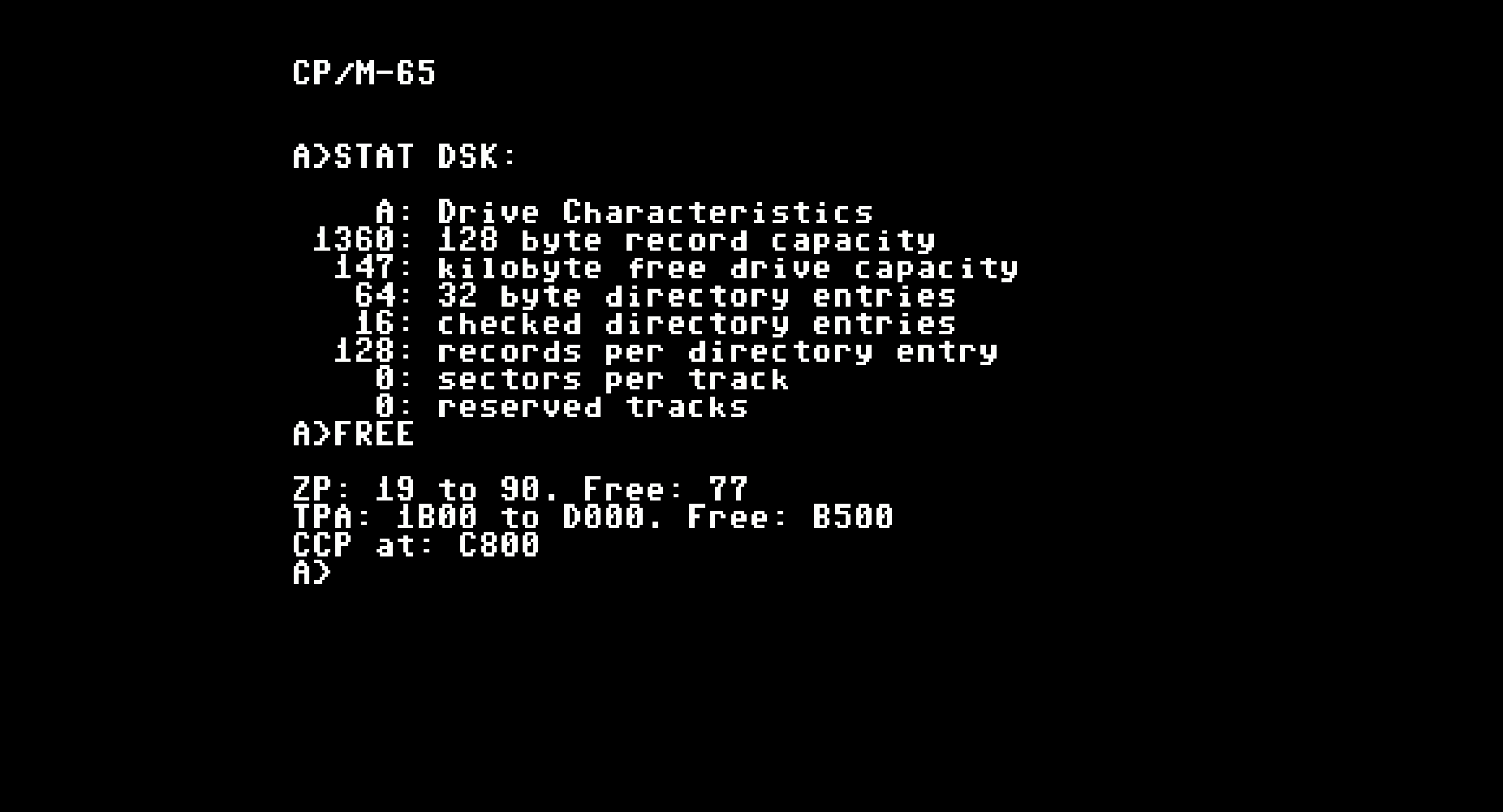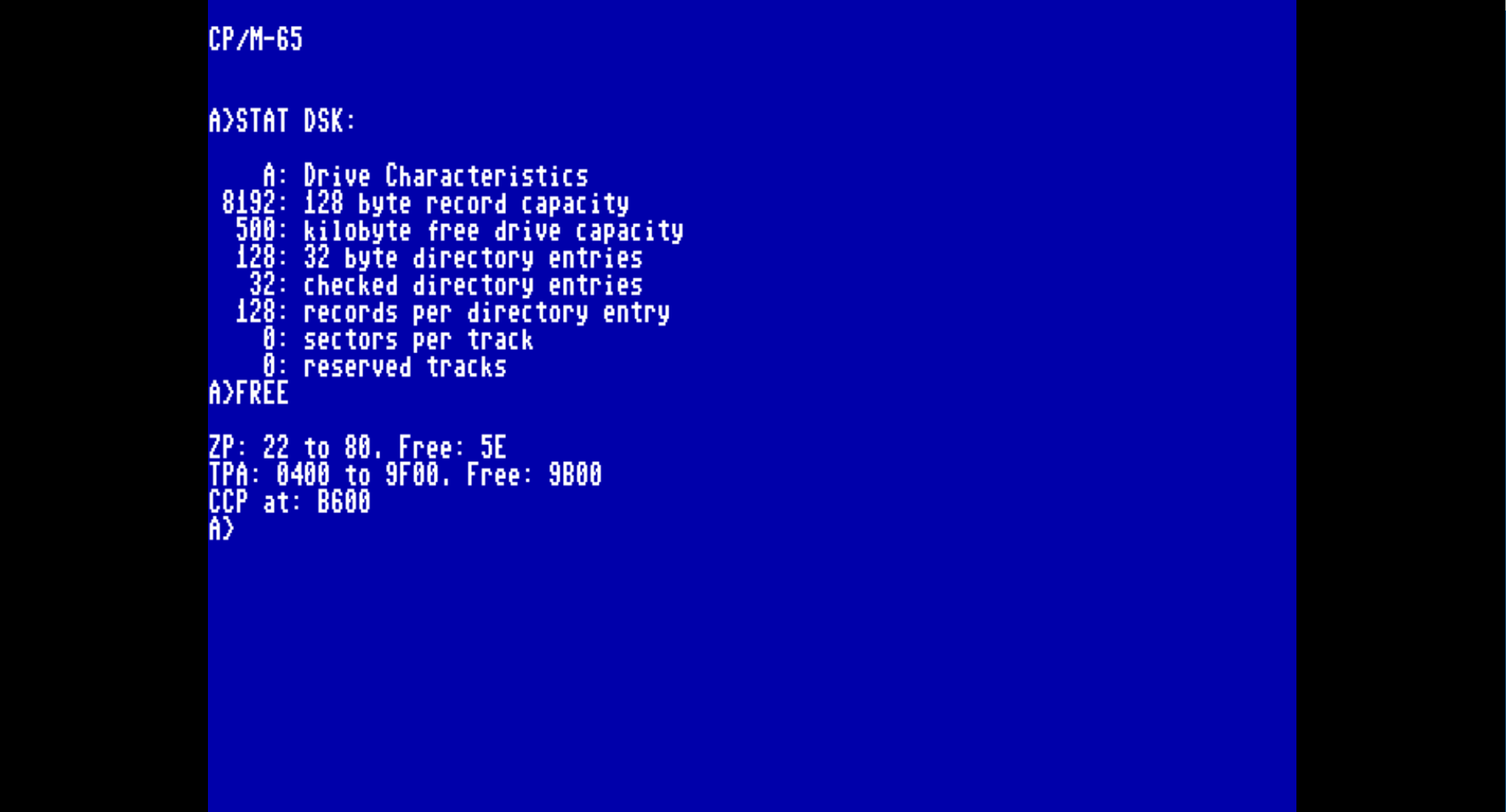This is a native port of Digital Research's seminal 1977 operating system CP/M to the 6502. So far it runs on:
- BBC Micro (and Master, and Tube)
- Commodore 64
- Commander X16
Unlike the original, it supports relocatable binaries, so allowing unmodified binaries to run on any system: this is necessary as 6502 systems tend to be much less standardised than 8080 and Z80 systems. On the BBC Micro in mode 7 you get a 21kB TPA, on the Master you get about 25kB, and on the C64 you get 46kB. A BBC Tube system will give you just under 57kB, which is nice.
Currently you can cross-assemble programs from a PC, as well as a working C toolchain with llvm-mos. I plan on finding an assembler and editor which will run natively for full native development support.
No, it won't let you run 8080 programs on the 6502!
Why not?
You will need the llvm-mos toolchain. CP/M-65 support is available out of the box. Once installed, you should just be able to run the Makefile and you'll get bootable disk images for the Commodore 64 (with 1541 drive) and BBC Micro (producing a 200kB SSSD DFS disk).
BBC Micro notes:
-
it'll autodetect the amount of available memory. If you're on a Master or Tube system, I'd suggest making sure you're in mode 0 or 3 before running. On a BBC Micro... well, it will run in mode 0, but you'll only get a 2.5kB TPA! I suggest mode 7.
-
the CP/M file system is stored in a big file (called cpmfs). This will expand up to the size defined in diskdefs: currently, 192kB (the largest that will fit on a SSSD disk). All disk access is done through MOS so you should be able to use a ramdisk, hard disk, Econet, ADFS, VDFS, etc. If so, you'll want to define your own disk format and adjust the drive definition in the BIOS to get more space.
Commodore 64 notes:
-
load and run the
CPMprogram to start. -
it's excruciatingly slow as it uses normal 1541 disk accesses at 300 bytes per second. Everything works, but you won't enjoy it. At some point I want to add a fastloader.
-
the disk image produced is a hybrid of a CP/M file system and a CBMDOS file system, which can be accessed as either. The disk structures used by the other file system are hidden. You get about 170kB on a normal disk.
-
disk accesses are done using direct block access, so it won't work on anything other than a 1541. Sorry.
Commander X16 notes:
-
to use, place the contents of the
x16.zipfile on the X16's SD card. Load and run theCPMprogram to start. -
the CP/M filesystem is stored in a big file called CPMFS. It needs support for the Position command in order to seek within the file.
x16emucurrently doesn't support this in its host filesystem, so you'll need to use an actual SD card image. (I have a pull request outstanding to add support. An SD2IEC should work too, as these support the same commands. However a real Commodore disk drive will not work.
Supported programs:
You don't get a lot right now. As transients, you get DUMP, STAT, COPY
and SUBMIT. I'd love more --- send me pull requests! The build system
supports cc65 assembler and llvm-mos C programs.
In the CCP, you get the usual DIR, ERA, TYPE and USER. There is no
SAVE as on the relocatable CP/M-65 system, assembling images in memory is of
questionable utility, but there's a new FREE command which shows memory
usage.
Pokey the Penguin loves to read your pull requests!
You may contact me at dg@cowlark.com, or visit my website at http://www.cowlark.com. There may or may not be anything interesting there. The CP/M-65 project was designed and written by me, David Given.
Everything here so far is © 2022 David Given, and is licensed under the two-clause BSD open source license. Please see LICENSE for the full text. The tl;dr is: you can do what you like with it provided you don't claim you wrote it.


